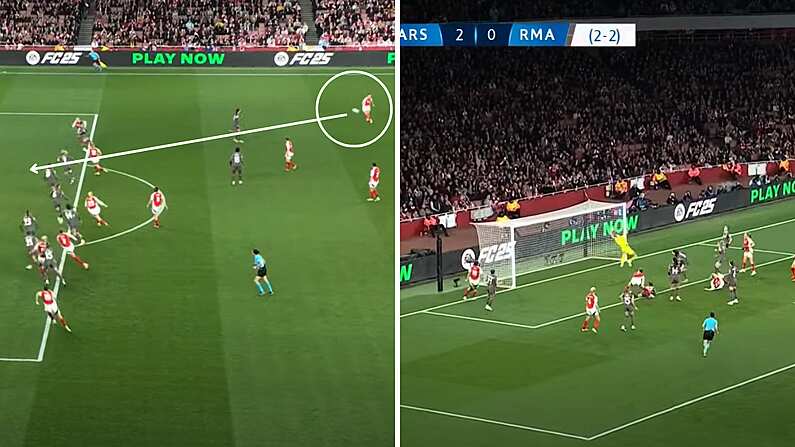Football might have to start asking itself serious questions about how it treats the issue of concussion and head injury in the sport after a study has shown that repeatedly heading a football over the course of a career can be linked to long-term brain damage.
Only a matter of days ago the football world seemed to react to Hector Bellerin's concussion against Chelsea with all the urgency and concern of a stoned sloth, and it may have to change its tune after findings from researchers from University College London and Cardiff University.
Researchers examined six footballers who had played football for an average of 26 years - five former professionals and one who played at a high amateur level - and after their careers all of them proceeded to develop dementia in their sixties. Prof Huw Morris from UCL, talking to the BBC, compared the individuals' brains to what one might expect to see in ex-boxers and those suffering from chronic traumatic encephalopathy or CTE (the brain injury causing much concern in rugby and American football). Indeed, as well as all six developing dementia, four of them also exhibited symptoms of CTE. And, while the report did not look into the risks of heading the ball at underage level, the findings lay out in black and white the health risks involved for players involved in the game over a prolonged period. Barbara O'Connell is the chief executive of Acquired Brain Injury Ireland and she told the Irish Times that the findings may indicate a need for fundamental change in how the game is played:
Players may need education about how to head the ball, and we also need to teach coaches what concussion is.
Dr Helen Ling of UCL's Institute of Neurology (per the Times) highlighted the small size of the sample group as one issue with the study. But the research will still force football to face the same uncomfortable questions that rugby and American football has had to face up to in recent times.
The inquest into former West Brom and England forward Jeff Astle, who died in 2002 aged 59, found that repeatedly heading heavy footballs contributed to the early onset dementia that he suffered from at the time of his death. His daughter Dawn, speaking to BBC Radio 5 Live, accused football of failing in its obligations towards both her father and the game in general:
At the Coroner's inquest, football tried to sweep his death under a carpet. They didn't want to know, they didn't want to think that football could be a killer and sadly, it is. It can be.
It is disgraceful nothing concrete has been done since by the FA or the PFA.
It remains to be seen whether football will pay heed to the warning this study provides, or whether there will continue to be former players suffering the same fate as Astle.











